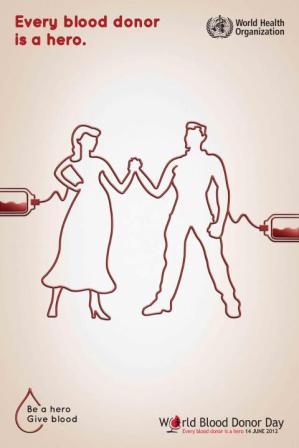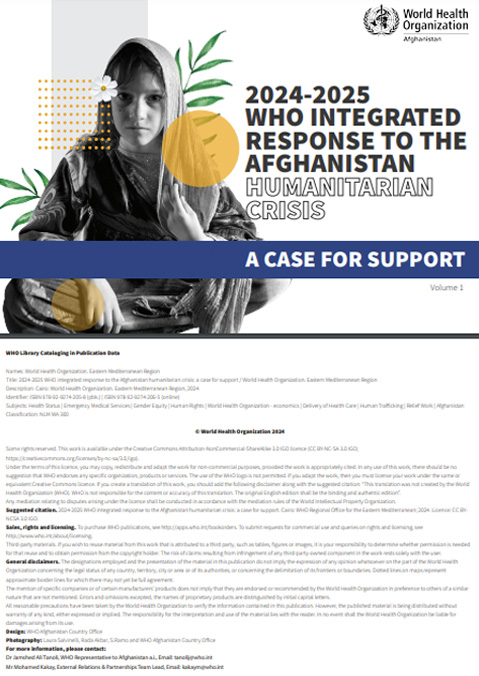 In coordination with the Ministry of Public Health, WHO has defined a comprehensive strategy for establishing a safe blood transfusion services in AfghanistanBlood transfusion is an essential component of health care services which saves millions of lives each year. Every second, someone in the world needs blood for surgery, trauma, severe anaemia or complications of pregnancy. Severe bleeding during delivery or after childbirth is the most common cause of maternal mortality in many developing countries. Therefore, blood transfusion is considered as one of the best life-saving medical interventions.
In coordination with the Ministry of Public Health, WHO has defined a comprehensive strategy for establishing a safe blood transfusion services in AfghanistanBlood transfusion is an essential component of health care services which saves millions of lives each year. Every second, someone in the world needs blood for surgery, trauma, severe anaemia or complications of pregnancy. Severe bleeding during delivery or after childbirth is the most common cause of maternal mortality in many developing countries. Therefore, blood transfusion is considered as one of the best life-saving medical interventions.
The Afghanistan National Blood Safety and Transfusion Service - an integral part of the national health care system - was created by the Ministry of Public Health to establish and maintain the safety and adequacy of the national blood supply. The Service currently has five regional blood banks in Kabul, Mazar-e-Sharif, Herat, Jalalabad and Kandahar.
However, despite recent operational progress, blood transfusion services in Afghanistan require more effort to be fully efficient in terms of quality of services: data information and quality assurance systems are not fully established and there is no formal legislative instrument to guide, manage and supervise operations of private blood banks.
Safe blood transfusion services
In coordination with the Ministry of Public Health, WHO has defined a comprehensive strategy for establishing a safe blood transfusion services, based on the following components.
Establish central national blood transfusion services, to timely provide safe blood and blood components to the national health services and to all patients in need.
Set up a collection system of blood only from voluntary unpaid donors.
Produce blood components to maximize the use of donated blood.
Launch an operational system for appropriate clinical use of blood and the use of alternatives, where possible, to minimize unnecessary transfusions.
Include training activities on appropriate use of blood in national continuing medical education training programme of practitioners in Afghanistan.










